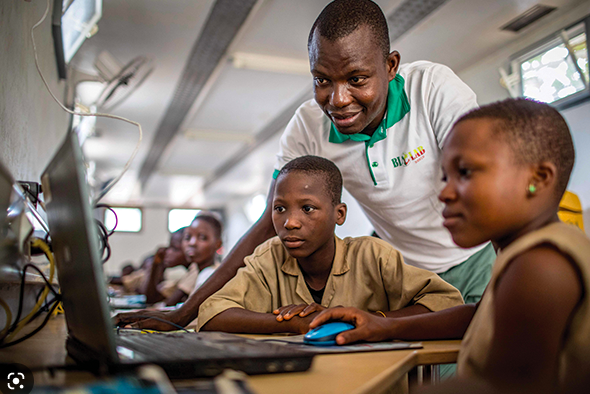The digital economy is rapidly transforming Africa, with new technologies and innovations driving growth and development across the continent. From e-commerce to mobile banking, digital technologies are revolutionizing the way businesses operate, transforming traditional industries, and creating new opportunities for entrepreneurs and innovators.
In recent years, Africa has seen significant growth in internet penetration, with mobile phones being the primary mode of internet access. According to a report by GSMA, mobile internet penetration in Africa reached 26% in 2020, up from just 2% in 2010. This growth has been driven by the increasing availability of affordable smartphones and a drop in data prices. The growth in internet access has led to the emergence of new digital platforms and services, which have become essential tools for businesses and consumers alike.
One of the most significant areas of growth in Africa’s digital economy has been e-commerce. With the rise of digital marketplaces like Jumia and Konga, consumers can now purchase goods and services online, with many businesses offering delivery services to their customers. E-commerce has opened up new markets for businesses, enabling them to reach customers beyond their local areas and expand their customer base.
Another key driver of the digital economy in Africa is mobile money. According to the World Bank, over 50% of the adult population in sub-Saharan Africa now has a mobile money account. Mobile money has become an essential tool for financial inclusion, providing access to banking services for millions of people who previously had no access to traditional banking services. It has also become a critical tool for businesses, enabling them to conduct transactions and manage their finances more efficiently.
The rise of the digital economy in Africa has also created new opportunities for entrepreneurs and innovators. Tech hubs and incubators have emerged across the continent, providing support and resources for startups and small businesses. These hubs have become vital sources of innovation, driving the development of new technologies and solutions to address the unique challenges faced by businesses in Africa.
Despite the significant growth in Africa’s digital economy, there are still challenges that need to be addressed. One of the biggest challenges is the lack of digital infrastructure, particularly in rural areas. Many people in rural areas still lack access to the internet, limiting their ability to participate in the digital economy. There is also a need to address the digital skills gap, with many businesses struggling to find skilled workers with the expertise needed to succeed in the digital economy.
Governments and policymakers in Africa are starting to recognize the importance of the digital economy and are taking steps to promote its growth. Many countries have developed national strategies for the digital economy, with a focus on improving digital infrastructure, developing digital skills, and creating an enabling environment for businesses to thrive.
In conclusion, the digital economy is transforming Africa, creating new opportunities for businesses, entrepreneurs, and innovators. E-commerce and mobile money have become essential tools for businesses and consumers alike, driving growth and development across the continent. However, there are still challenges that need to be addressed, particularly in the areas of digital infrastructure and skills development. Governments and policymakers have a critical role to play in promoting the growth of the digital economy and ensuring that all Africans can benefit from its potential.































































